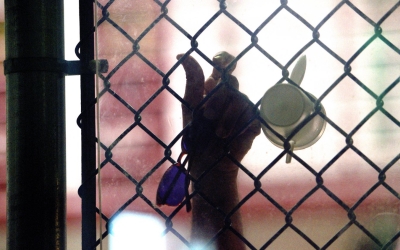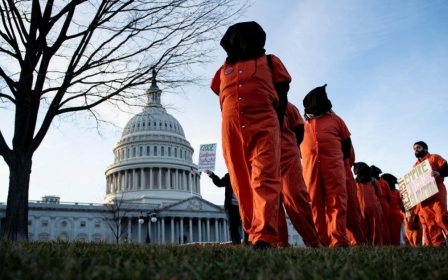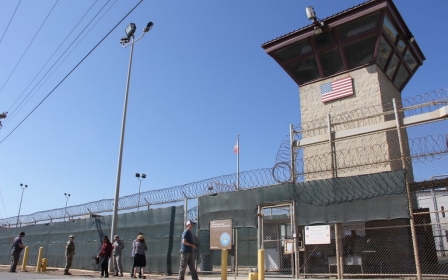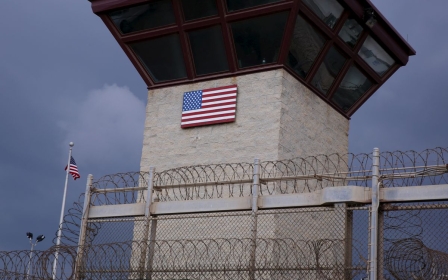Guantanamo: Tumour discovered on detainee Ammar al-Baluchi's spine, court filing says
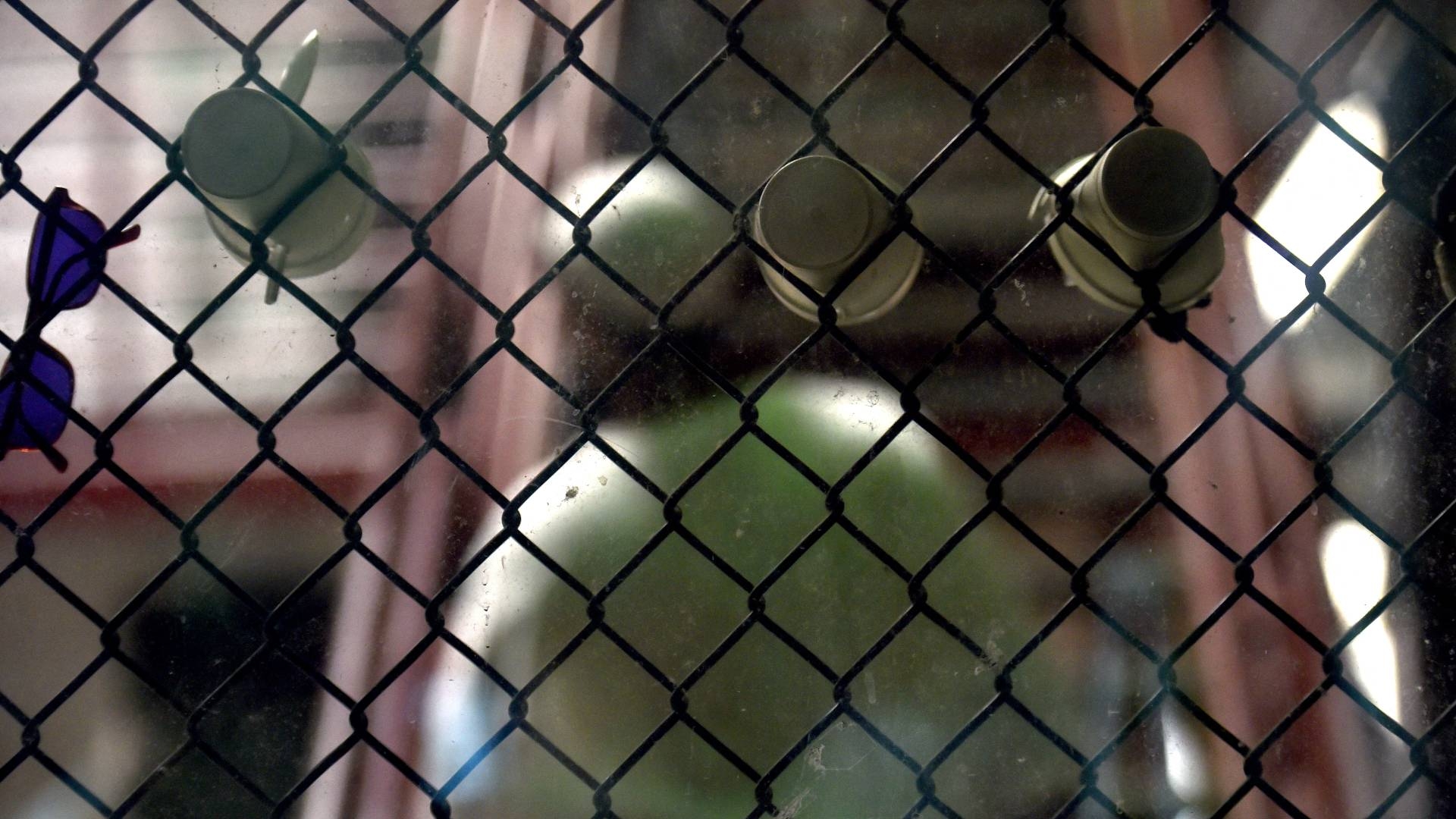
A lawyer for Guantanamo detainee, Ammar al-Baluchi, who for years has been suffering from severe brain damage as a result of his treatment at CIA black sites, on Friday filed a new report in court saying that Baluchi has been discovered to have a small tumour located on his spine.
The status report, filed in federal court in Washington, was submitted by attorney Alka Pradhan after she travelled to the detention centre at Guantanamo Bay earlier this month and met with Baluchi.
While speaking to Baluchi, the detainee informed Pradhan that he was told of the tumour by a neurosurgeon at the prison facility.
Last week, Pradhan obtained copies of the most recent MRI images, which were conducted in November 2022, and the data was sent to independent medical experts who said the tumour was likely spinal meningioma, usually a benign tumour.
"We knew that Ammar had had an MRI, but everything takes so much time at Guantanamo, and we didn't actually know what the MRI said until we heard from him at the end of December," Pradhan told Middle East Eye.
However, while the tumour appears benign, Baluchi's condition will "eventually affect motor or sensory nerves as it grows", according to the filing.
"This is incredibly concerning. It's the kind of diagnosis that, if one of your family members received a diagnosis like this, we would be getting second and third and fourth opinions immediately from the best doctors we could find," Pradhan said.
Previous MRIs of Baluchi's head in 2018 and 2020 found "abnormalities indicating moderate to severe brain damage" in the parts of his brain affecting memory formation, retrieval, and behavioural regulation.
The brain scans also found that the Guantanamo detainee's psychological functioning had "seriously diminished" as a result of the torture, leaving him with a host of issues including traumatic brain injury, anxiety, depression, and post-traumatic stress disorder.
The filing on Friday comes as Pradhan has for months been petitioning the US District Court in Washington DC to grant a mixed medical commission (MMC) - a panel of independent experts made up of a medical officer from the US military and two doctors from a neutral country chosen by the International Committee of the Red Cross.
If granted, the commission could conclude that the detainee's condition requires him to be transferred out of the prison.
"Typically, a diagnosis of a spinal tumor would require evaluation by a panel of experts to confirm a precise diagnosis and propose potential treatment plans," Friday's court filing said.
"This diagnosis is a compelling reason for the United States to provide Petitioner with an evaluation by a Mixed Medical Commission."
The Department of Justice has so far resisted the request, stating in a September 2022 filing that a medical commission would not lead to Baluchi's transfer and that he "will continue to have comprehensive medical care available to him, administered by qualified military staff duty-bound to protect his physical and mental health".
On 3 October, Pradhan submitted a filing that called into question the Biden administration's opposition to the request, saying the Department of Justice had failed to respond to the actual petition.
Since then, the administration has not issued any filing in the case. Middle East Eye reached out to the Pentagon for comment but did not receive a response by the time of publication.
Guantanamo's health needs
Baluchi, a 44-year-old Kuwaiti national also known as Ali Abdul Aziz Ali, spent more than three years in CIA custody and was moved between a total of six "black sites" before being transferred in 2006 to Guantanamo Bay.
His case has been in pre-trial hearings for a decade, with delays over the legal admissibility of testimony obtained after his torture.
Last year, newly declassified documents revealed that during his time at a black site in Afghanistan, Baluchi was used as a "prop" and training tool for trainee interrogators to practice torture techniques.
The documents revealed that interrogators-in-training lined up to take turns experimenting on him, including one CIA-approved technique called "walling", in which the detainee's heels are placed against a plywood wall "which had flexibility to it", and a rolled-up towel is put around the neck. The detainee is then repeatedly slammed into the wall by their collar. Baluchi was naked during the interrogation.
Rights groups and civil society organisations have for years criticised the US government for the lack of medical facilities provided to properly treat many of the detainees at Guantanamo.
A 2019 report found that medical equipment and expertise available on-site were "increasingly insufficient to address detainees' health needs".
Last week, The New York Times reported that there was a severe outbreak of Covid-19 at the prison, with at least one-third of the detainees having contracted the virus. MEE reported last year that there was another Covid-19 outbreak in the detention centre.
Middle East Eye delivers independent and unrivalled coverage and analysis of the Middle East, North Africa and beyond. To learn more about republishing this content and the associated fees, please fill out this form. More about MEE can be found here.


